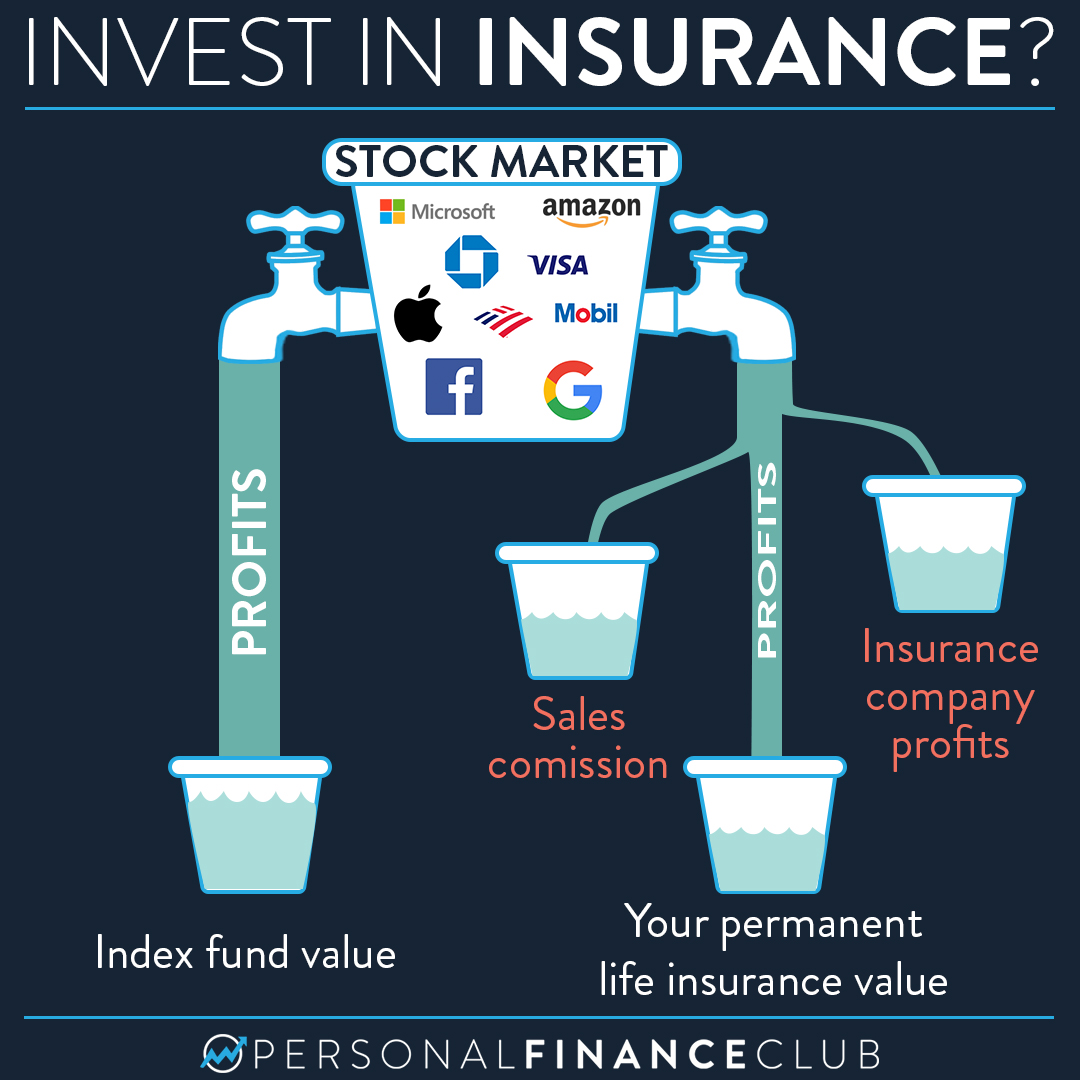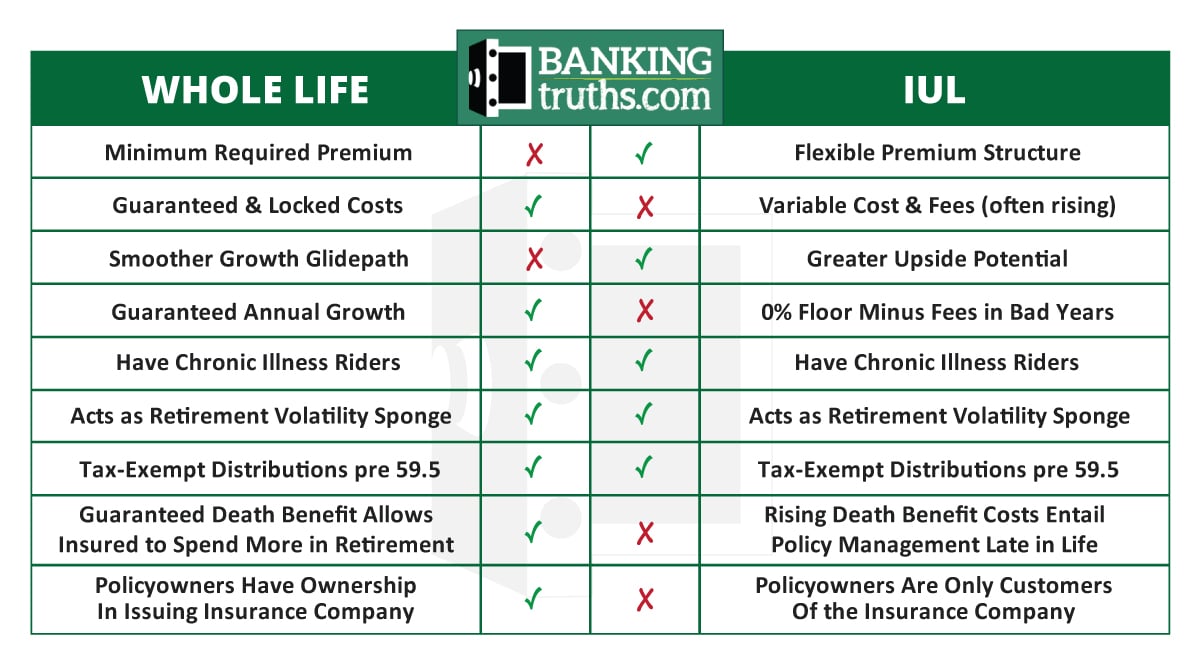All Categories
Featured
Table of Contents
Indexed Universal Life (IUL) insurance coverage is a sort of permanent life insurance coverage plan that incorporates the features of typical global life insurance policy with the possibility for money worth growth linked to the performance of a stock exchange index, such as the S&P 500 (Long-term IUL benefits). Like other kinds of permanent life insurance policy, IUL provides a survivor benefit that pays out to the beneficiaries when the insured dies
Cash worth buildup: A portion of the premium repayments enters into a money worth account, which gains rate of interest over time. This cash worth can be accessed or borrowed versus during the insurance holder's lifetime. Indexing option: IUL policies provide the opportunity for cash value development based on the performance of a stock exchange index.
What happens if I don’t have Indexed Universal Life Calculator?
Just like all life insurance policy items, there is likewise a collection of dangers that policyholders need to be aware of prior to considering this kind of plan: Market threat: Among the primary threats related to IUL is market danger. Because the cash worth growth is connected to the performance of a stock exchange index, if the index does badly, the cash money worth might not expand as anticipated.

Enough liquidity: Insurance holders should have a secure economic circumstance and be comfortable with the superior settlement requirements of the IUL policy. IUL permits versatile costs settlements within certain restrictions, yet it's important to maintain the plan to ensure it accomplishes its intended goals. Rate of interest in life insurance policy protection: People who require life insurance policy coverage and a rate of interest in money value growth may locate IUL appealing.
Candidates for IUL need to have the ability to understand the technicians of the plan. IUL may not be the ideal option for individuals with a high resistance for market threat, those who prioritize affordable investments, or those with even more prompt economic requirements. Consulting with a certified economic advisor that can offer personalized advice is essential prior to taking into consideration an IUL policy.
All registrants will receive a calendar invite and link to join the webinar through Zoom. Can't make it live? Register anyway and we'll send you a recording of the discussion the next day.
How do I apply for Indexed Universal Life For Wealth Building?
You can underpay or miss premiums, plus you might be able to adjust your fatality benefit.
Flexible costs, and a survivor benefit that may also be adaptable. Money value, together with prospective growth of that value via an equity index account. Indexed Universal Life loan options. A choice to designate component of the cash value to a set rate of interest choice. Minimum rate of interest price warranties ("floorings"), but there might additionally be a cap on gains, normally around 8%-12%. Collected cash worth can be used to reduced or potentially cover costs without deducting from your fatality benefit.
Insurance policy holders can choose the percentage allocated to the fixed and indexed accounts. The value of the selected index is taped at the beginning of the month and contrasted with the value at the end of the month. If the index raises during the month, rate of interest is included to the cash money worth.
The 6% is multiplied by the money value. The resulting interest is contributed to the cash money value. Some policies calculate the index gets as the sum of the modifications through, while other plans take an average of the everyday gains for a month. No rate of interest is attributed to the cash money account if the index drops rather than up.
Where can I find Long-term Indexed Universal Life Benefits?
The price is established by the insurance provider and can be anywhere from 25% to more than 100%. (The insurer can likewise alter the participate rate over the lifetime of the plan.) As an example, if the gain is 6%, the involvement rate is 50%, and the existing cash worth total is $10,000, $300 is contributed to the cash money worth (6% x 50% x $10,000 = $300).
There are a number of advantages and disadvantages to think about before buying an IUL policy.: Just like conventional universal life insurance policy, the insurance policy holder can increase their premiums or lower them in times of hardship.: Quantities attributed to the cash worth expand tax-deferred. The money worth can pay the insurance coverage premiums, allowing the insurance policy holder to lower or stop making out-of-pocket premium payments.
What is Iul Tax Benefits?
Several IUL plans have a later maturity date than various other kinds of universal life plans, with some finishing when the insured reaches age 121 or even more. If the insured is still active at that time, plans pay the death benefit (but not generally the money worth) and the earnings might be taxable.

: Smaller policy face worths do not offer much advantage over normal UL insurance policy policies.: If the index decreases, no interest is attributed to the cash worth. (Some plans supply a low guaranteed rate over a longer period.) Various other investment automobiles utilize market indexes as a benchmark for efficiency.
With IUL, the goal is to profit from upward movements in the index.: Due to the fact that the insurance policy firm only buys options in an index, you're not straight purchased stocks, so you don't benefit when firms pay rewards to shareholders.: Insurers fee costs for managing your cash, which can drain cash money value.
What is the most popular Iul For Retirement Income plan in 2024?

For many people, no, IUL isn't far better than a 401(k) - High cash value Indexed Universal Life in terms of conserving for retirement. A lot of IULs are best for high-net-worth people searching for means to decrease their taxable revenue or those that have actually maxed out their other retirement choices. For every person else, a 401(k) is a better financial investment car since it doesn't carry the high costs and costs of an IUL, plus there is no cap on the quantity you may gain (unlike with an IUL policy)
While you may not lose any kind of money in the account if the index drops, you won't gain rate of interest. If the market turns bullish, the earnings on your IUL will not be as high as a common financial investment account. The high cost of premiums and charges makes IULs pricey and substantially much less inexpensive than term life.
Indexed global life (IUL) insurance coverage supplies cash worth plus a fatality advantage. The cash in the cash money worth account can earn passion through tracking an equity index, and with some frequently allocated to a fixed-rate account. Indexed universal life plans cap exactly how much cash you can collect (usually at less than 100%) and they are based on a possibly unstable equity index.
Indexed Universal Life Death Benefit
A 401(k) is a much better option for that purpose because it does not bring the high charges and costs of an IUL plan, plus there is no cap on the quantity you might gain when invested. Many IUL policies are best for high-net-worth individuals looking for to decrease their gross income. Investopedia does not supply tax obligation, investment, or economic services and advice.
If you're thinking about buying an indexed universal life plan, initial talk to a financial advisor that can explain the subtleties and give you an exact picture of the real capacity of an IUL policy. See to it you comprehend just how the insurer will determine your rate of interest rate, revenues cap, and costs that may be assessed.
Latest Posts
Guaranteed Universal Life Insurance Quotes
Iul Unleashed
Universal Life No Lapse Guarantee